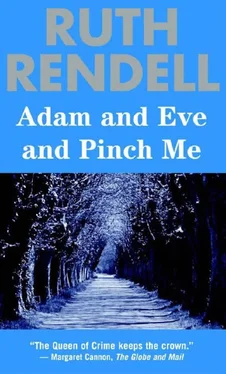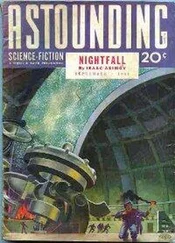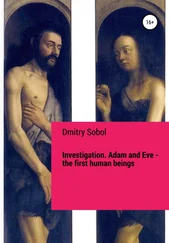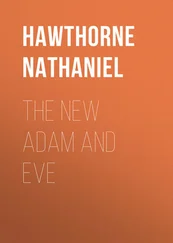The police knew her. There were no problems of identification. For several years she had had a room in Jakarta Road off Mill Lane in West Hampstead, paid for by Camden Council, but she had seldom lived in it, preferring to wander the streets and sleep out of doors, at least in summer. Kilburn and Maida Vale and Paddington Recreation Ground were among her haunts. They had never known her to come as far west as this. But Eileen was known to love flowers and had once been observed sleeping in the doorway of an empty building that had formerly been a bank, on the corner of Maida Vale and Clifton Road. It happened to be very close to where the flower and plant seller would pitch his stall in the morning, and perhaps she’d chosen it in anticipation of waking up to the scent of carnations and roses in the morning. The site of her death, the seat on which she was lying, was just in front of a crescent-shaped flower bed, at present red, white, and pink with geraniums, among which lay the detritus of meals and drinks consumed on the street.
It took only a short time to establish that the knife used to stab her was very similar to the one that killed Jeffrey Leach. Similar but not identical. Possibly one of a pair bought at the same time. So advanced are forensics by now that investigators can tell precisely the shape and size of a weapon used in these circumstances, the nicks, if any, on its blade, any minuscule unevenness in that blade’s surface, for a knife itself is unique. So they knew it wasn’t the knife but its twin.
The motive for the killing of Jeffrey Leach remained obscure but the motive for this one at first seemed transparent. The holdall Eileen carried with her, which lay under her head, usually held a blanket and a cardigan and scarf, a can of fizzy drink-she was strictly teetotal-a sandwich or two as well as her pension book. It was empty. There should also have been money, for Eileen had drawn two weeks’ pension the day before and had spent only a little of it on the food and drink. Does anyone do murder for £140? Violent Crimes knows it’s done for half that, for a quarter; it’s done for the price of ten grams of cannabis.
On the other hand, they were sure Eileen was the victim of Jeffrey Leach’s killer and the question of financial profit hadn’t entered into that. So were there any links between the two victims apart from the close similarity of the weapons used? How about West Hampstead?
Leach had been living there for the six months prior to his death. Jakarta Road was two streets away from Holmdale Road, running parallel to it but linked by a cross street, Athena Road. Although they were yet to discover whether Eileen had ever frequented Holmdale, West Hampstead police-the police station was in Fortune Green Road-knew Athena Road to be a favorite pitch of hers. Twice they’d moved her on when she’d been found sleeping on someone’s front lawn between the flower borders. Had she tried the same experiment in camping in the gardens of Holmdale Road?
Sunday had passed without Jims addressing a word to her. He stayed at home, but in silence. It was as if he’d lost the use of his tongue. Zillah wouldn’t have believed until she experienced it that anyone could behave like that, not simply not speaking, but acting as if he were alone in the place. The children and she might have been inanimate objects or pieces of furniture for all the notice he took of them. It was as if they had become inaudible and invisible, and she’d hardly have been surprised if, seeking a chair to settle himself into, he’d sat on one of them or on her.
This policy of ignoring them made her, against her will and determination, conciliatory toward him. She prepared quite a nice lunch of scrambled eggs and smoked salmon with a salad, offered him the dishes, poured him a glass of wine. He took no notice of any of it but went to the kitchen, returning with a sandwich he’d made himself and beer which he drank out of the can. She found herself looking wistfully at him and forced her head to turn away. The afternoon he spent at his desk, apparently writing letters. She couldn’t help thinking that if only he’d been of a different sexual orientation she could have won him over, seduced him, charmed him, but if he’d been different she knew very well she wouldn’t have been with him in the first place.
At about five Moon and Stars Television rang. Eugenie answered and gave the response she always did if Zillah failed to get to the phone first.
“She’s not available.”
Zillah snatched the receiver from her. The woman at the other end wanted to say that they were afraid they couldn’t send a car in the morning after all. Of course she could still come under her own steam if she liked. Zillah, sensing she was no longer the attraction she once had been, thought she did like, though she was longer quite sure. At any rate, she agreed. It would mean getting up at five-thirty in the morning but it would be worth it. She could charm them, she could bewitch her audience. The phone rang again almost immediately. It was the cleaner from number nine to say she couldn’t manage babysitting in the morning after all.
Zillah looked at Jims. He appeared to be signing his letters. She was afraid to ask him. She’d just leave the children in the flat. After all, he’d be there, and with luck no one would wake up until she was back home again. Eugenie wouldn’t leave her brother to scream, would she?
Jims turned on the television news at five thirty-five, sat inscrutably through items about floods in Gujarat, ongoing strife in Zimbabwe, and the murder of an old woman in Kensal Green, before seeing himself scarlet-faced, then sheltering his flush behind his briefcase, as he emerged from the front door of Fredington Crucis House. The children watched it and so did Zillah, occasionally turning her eyes to cast fearful glances in Jims’s direction. He wasn’t blushing now but had become even whiter. The pictures weren’t new, they’d appeared the evening before, but now they were followed by comments from all sorts of Party dignitaries including the chairman of the South Wessex Conservatives who said stoutly that he had complete confidence in Mr. Melcombe-Smith and in his shortly being able to give clear replies to all the questions that still remained unanswered.
“Why is my stepfather on the TV?” asked Eugenie.
No one answered her. The phone rang, Jims answered it, put the receiver back without a word, and pulled out the plug. Unnerved, Zillah went into her bedroom, taking the children with her. Jordan had begun to whimper.
She dressed with great care. If real work came out of this interview, if it led to celebrity and getting her own television show, she wouldn’t have to leave London and go back to Willow Cottage. Jims had said, in a nasty sarcastic tone-on Saturday night, when he’d still had a tongue-that she’d like the cottage very much now, the new decorations made all the difference. “Especially the lovely contemporary fitted kitchen,” he’d added, as if that kind of language were habitual with her. But she wouldn’t like it and wild horses would have to drag her there.
She put on her favorite white suit with a coral red shirt because she’d heard that bright colors do best on television. Would they make her up or expect her to have done it herself? Zillah couldn’t contemplate going out into the street in London without makeup on. Long Fredington was another matter and the very thought of it made her shiver. Once she was back from Moon and Stars and had taken Jordan to the child psychiatrist, she’d find herself a solicitor and see what could be done to force Jims out of the flat. Something must be possible.
It was pouring rain. She’d left the flat on tiptoe, putting her key in the lock to close the door silently. She couldn’t go back for a raincoat or an umbrella. Fearing for her hair and her flimsy shoes, she tried to shelter under an overhanging portico while hailing a taxi but the result of this was that other people got there before her. She had to come out and get wet. The cab driver who finally stopped grinned at her rats’-tail hair.
Читать дальше











